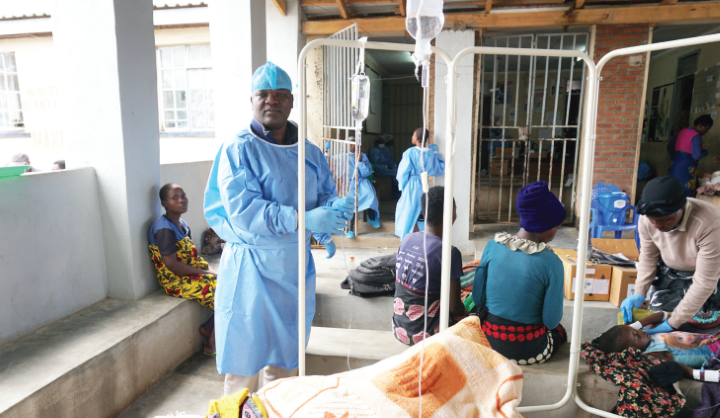The stolen dream
She was born, 37 years ago, with a heart full of gold in the remotes of Mpenda I Village, T/A Tomasi, Thyolo.
And she had a dream.
“I wanted to get educated, become a school teacher and later, own a school,” says Elufe Peter in quite a slow tone.
But along the way, society stole that dream. She was dropped from school while in Standard Eight, and just loafed at home. Years of loafing threw her into marriage at 21.
“The marriage didn’t stay long. My husband died in 1999 and left me without a child, completely helpless. I was back to square one,” she adds.
She migrated to Blantyre to search for a fortune. She pursued a lot of piecework in Indian shops and domestic jobs in different households until she got a second husband, a tailor, in 2003. She started living in Chilomoni, Blantyre, with the new husband.
“It was my joy. You know how tough it is for a woman to live without a husband,” she explains.
By the end of 2003, they had a bouncing baby girl. Life was picking up for her as a wife until mid 2004 when she started to get unwell. She started to experience stomach aches and persistent diarrhoea.
“The pains, despite taking medication, persisted for months. I began to get worried,” she says.
As her worry grew, her body, too, started to whither into twigs. Troubled, she asked her husband if they would go for an HIV and Aids test. He resisted with stern. He argued that her body was too strong and healthy for the virus.
But as she grew too weak to gather firewood for the family, she sneaked to Chilomoni Health Centre, where she was promptly diagnosed with HIV. That was in 2005.
“I was devastated. But I was not down. I broke the news to my husband to compel him to go for the test as well. He still refused,” he says.
In 2007, Peter’s illness started to worsen. Even tragic, her husband started to keep distance. He could not provide the care and support that a sick person demanded. As a result, she was always with her child, bedridden without a helping hand of an adult.
“I decided to go home in Thyolo. It wasn’t deliberate, but I needed support, love and care before I died. I wanted to die in peace,” she explains.
While home, she broke the news to her family. At first, her mother came out worried, almost devastated. She thought her daughter’s death was nigh. But Peter could always breathe word of hope to her.
“I told her I am not dying. I told her to regard my sickness just as any other sickness. I told her to give me hope so that I would die peacefully,” she says.
Despite her dose of hope amid adversity, Peter’s illness could hardly waiver. She became thin and always bedridden. Word spread across the village across the community that she was dying.
Worse still, the husband was a nail on her coffin.
“There was a time when I forced myself to go to the city and ask for his help. He brushed me off to the extent of denying me transport. I can tell you that in frailty health, I walked from Limbe to Thyolo. That was the worst experience I got from him.
“Imagine: It is two months now without hearing from him. I was briefed by a friend who told me that he has even changed the location he used to live in. I don’t know if I should still refer to myself as married or not,” she complains.
Despite her abusive husband and her deterioration of health, Peter still had to do something about her life. She has a daughter who needs her support.
In December 2010, she wobbled her way to Tomasi Health Centre, a few kilometers from her home. She wanted to have her defence system screened if she could qualify for Antiretroviral drugs (ARVs).
By January last year, Peter joined the 300 000 HIV positive Malawians who are currently on ARVs. In the same year, she got captured by Coalition of Women Living with HIV and Aids (COWLA) whose village support groups are changing the face of 4 000 HIV positive women in Thyolo.





